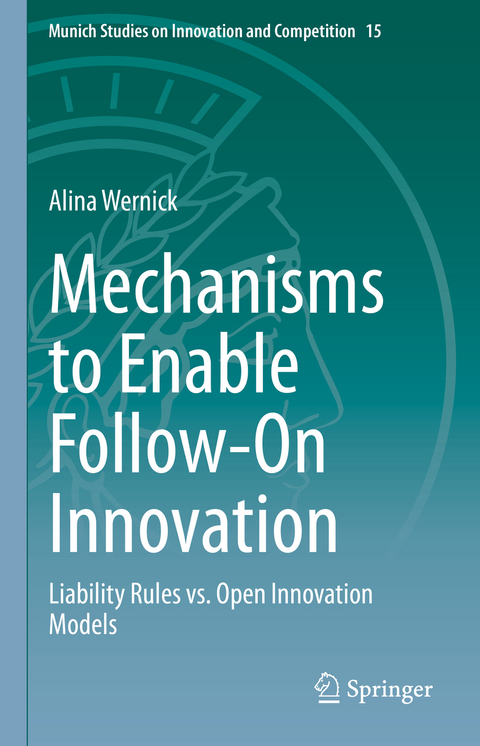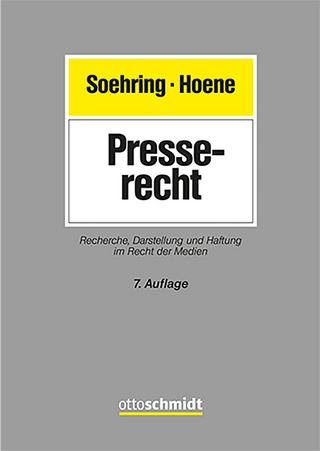
Mechanisms to Enable Follow-On Innovation
Springer International Publishing (Verlag)
978-3-030-72256-2 (ISBN)
The patent system is based on "one-patent-per-product" presumption and therefore fails to sustain complex follow-on innovations that contain a number of patents. The book explains that follow-on innovations may be subject to market failures such as hold-ups and excessive royalties. For decades, scholars have debated whether the market problems can be solved with voluntary licensing i.e., open innovation, or with compulsory liability rules. The book concludes that neither approach is sufficient. On the one hand, incentives to engage in open innovation practices involving patents are insufficient. On the other hand, the existing compulsory liability rules in patent and competition law are not tailored to address follow-on innovator's interests. To transcend this problem, the author proposes a compulsory liability rule against the suppression of follow-on innovation, that paradoxically, fosters early-on voluntary licensing between patent holders and follow-on innovators. The book is aimed at patent and competition law scholars and practitioners, patent attorneys, managers, engineers and economists who either engage in open innovation involving patents or conduct research on the topic. It also offers insights to policy and law-makers reviewing the possibilities to foster open innovation initiatives or adapt the scope of patent remedies or employ compulsory licenses for patents.
lt;p>
Dr. iur. Alina Wernick is an international legal scholar currently acting as a principal investigator of the research project "Smart city technologies' long-term human rights risks," funded by Kone Foundation. She is a grant-funded researcher at the University of Helsinki and affiliated researcher at the university's Legal Tech lab. Also, she is a research director for innovation at the 89 Initiative think-do tank Belgium and an affiliated researcher in the Legal Tech Lab at the University of Helsinki.
Dr. Wernick wrote her doctoral thesis on patent law and open innovation, which was awarded a grade summa cum laude, at the Ludwig-Maximilian-Universität under the supervision of Prof. Dr. Reto M. Hilty. Besides, she holds LL.M. and LL.B. degrees from the University of Helsinki.
Her academic experience encompasses research on data data-driven innovation, data governance and e-Health at the Humboldt Institute for Internet and Society. She has completed the International Max Planck Research School for Competition and Innovation, as well as conducted doctoral research at the Max Planck Institute for Innovation and Competition. Her academic career began at Simlab, an interdisciplinary laboratory in the Department of Industrial Engineering and Management at the Aalto University, where she assisted Prof. Dr. Sirkka Jarvenpaa and researched open innovation and trade secrets.
Introduction.- Theory.- Open approaches to innovation.- Economic foundations of compulsory liability rules.- Legal foundations and sources of compulsory liability rules.- Compulsory licenses in patent law.- Denial of injunctive relief.- Compulsory liability rules in Competition Law.- Normative recommendation.- Conclusions.
| Erscheinungsdatum | 15.05.2021 |
|---|---|
| Reihe/Serie | Munich Studies on Innovation and Competition |
| Zusatzinfo | XXIII, 450 p. 3 illus. in color. |
| Verlagsort | Cham |
| Sprache | englisch |
| Maße | 155 x 235 mm |
| Gewicht | 871 g |
| Themenwelt | Recht / Steuern ► EU / Internationales Recht |
| Recht / Steuern ► Öffentliches Recht | |
| Recht / Steuern ► Privatrecht / Bürgerliches Recht ► Medienrecht | |
| Schlagworte | Competition Law • Compulsory Licenses • Follow-on Innovation / Cumulative Innovation • Liability rules • Open Collaborative Innovation • Open Innovation • Patent Law • Patent Remedies • Standard Essential Patents • TRIPS Agreement |
| ISBN-10 | 3-030-72256-2 / 3030722562 |
| ISBN-13 | 978-3-030-72256-2 / 9783030722562 |
| Zustand | Neuware |
| Haben Sie eine Frage zum Produkt? |
aus dem Bereich


